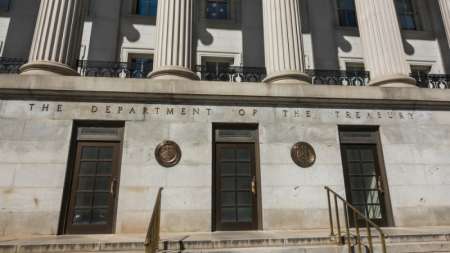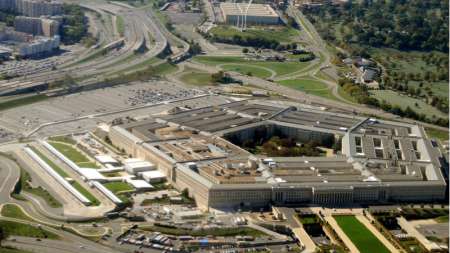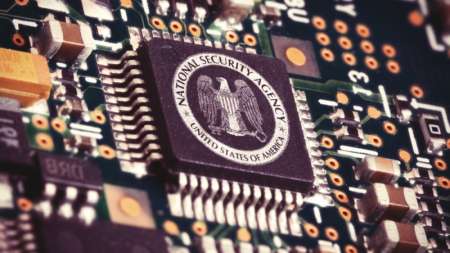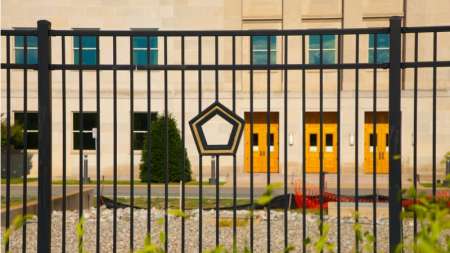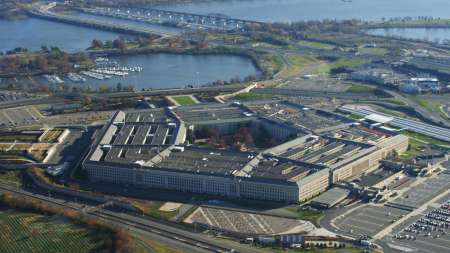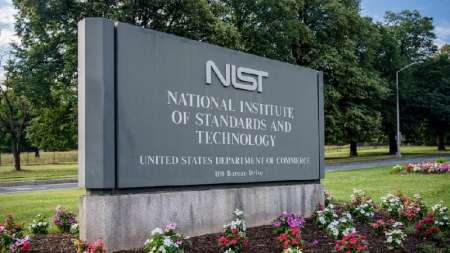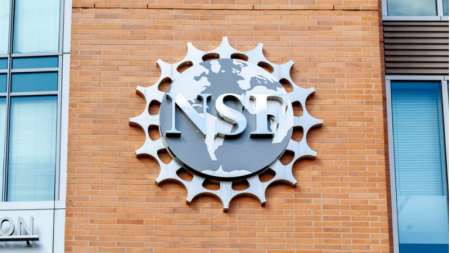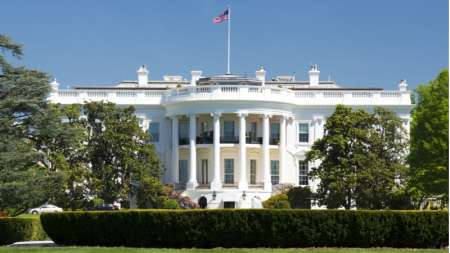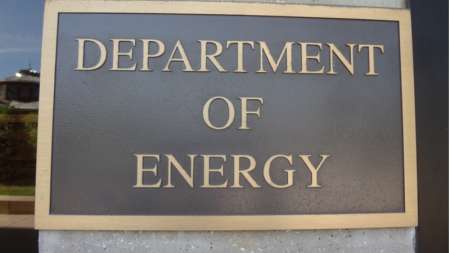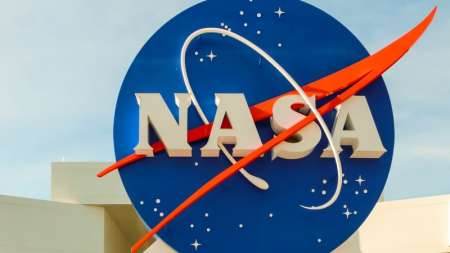The Cybersecurity and Infrastructure Security Agency (CISA) is gearing up to release its post-quantum cryptography (PQC) migration roadmap soon, a top CISA official revealed Tuesday. […]
The Treasury Department issued a draft rule on Friday that would block U.S. private-sector investments in China that involve hot-button technologies including AI, quantum, and semiconductors. […]
Two top officials from the Pentagon’s Office of the Assistant Secretary of Defense for Science & Technology (OASD(S&T)) highlighted ways the Defense Department (DoD) is leading the charge on leveraging innovative technologies in the areas of quantum and biotech. […]
By Dr. James Matney, Vice President, Defense Strategy, GDIT Amid all of the (well-placed) excitement around artificial intelligence, quantum AI is an emerging field that combines the power of quantum computing with AI to create new and innovative solutions for an array of complex problems. Here’s why: Quantum computing is a method of solving complex problems […]
As Federal agencies are working to protect themselves from quantum-driven hacking, Federal experts on Thursday said that cybersecurity teams must be involved in the quantum computing conversation from the start – otherwise, the emerging technology will be a “disservice” to everyone. […]
Two leading government agencies are getting set to release their latest guidance for Federal officials on how to start securing critical data against potential cybersecurity threats posed by advances in quantum computing, officials said on May 30. […]
The U.S. government is continuing to invest in the advancement and implementation of critical and emerging technologies – such as artificial intelligence (AI) and quantum sciences – because they are key to both enabling economic prosperity and defending national security. […]
The Pentagon’s Defense Innovation Unit (DIU) launched the first solicitation under its new emerging technology portfolio on May 9, focusing the first lines of effort on quantum sensing tech and hypersonics. […]
A new bill introduced in the House and Senate is looking to designate a principal quantum advisor to the secretary of Defense to “supercharge” the Pentagon’s approach to quantum technology. […]
While practical employment of quantum computing remains out of reach for the time being, a National Security Agency (NSA) said this week that industry and government must work closely together to lay the groundwork for quantum capabilities to be easily adopted when the time comes for widescale deployment. […]
The National Institute of Standards and Technology’s (NIST) National Cybersecurity Center of Excellence (NCCoE) has released two preliminary draft practice guides “to share insights and findings to ease migration from current public-key cryptographic algorithms to soon-to-be standardized” post-quantum cryptography (PQC) algorithms. […]
A White House official said Tuesday it’s critical that Federal agencies start testing quantum-resistant cryptographic algorithms on their IT systems today to ensure critical networks aren’t accidentally shut down when the time comes to transition systems to post-quantum cryptography. […]
Energy Department’s (DoE) Chief Information Officer Ann Dunkin said today that DoE is driving innovation in quantum technologies and supercomputing, and highlighted some of the ways that those technologies will begin to positively impact the department’s mission in the future. […]
As the deadline for public input on the National Institute of Standards and Technology’s (NIST) quantum standardization efforts approaches on Nov. 22, a NIST official said during the Nov. 15 Red Hat Government Symposium 2023 event in Washington, D.C. that the public can expect to see the finalized version of the guidelines in the first part of 2024. […]
Reps. Andrea Salinas, D-Ore., and Jim Baird, R-Ind., introduced bipartisan legislation last week that would amend the National Quantum Initiative Act (NQIA) to accelerate quantum research by improving access to quantum research resources. […]
The Center for Data Innovation (CDI) is urging Congress to double the funding level of a key quantum information science (QIS) law approved in 2018 as one of several necessary steps it says the U.S. needs to take to stay ahead of the world in (QIS) and maintain a lead in quantum computing. […]
The National Science Foundation (NSF) has awarded 18 university research teams across the country a total of $29 million to conduct research on quantum-scale sensors. […]
The National Science Foundation (NSF) is providing $38 million in new funding to 22 higher education institutions to bolster research into quantum information science and engineering (QISE) aimed at outcome including the creation of sustainable energy and improving cybersecurity. […]
The Cybersecurity and Infrastructure Security Agency (CISA) – alongside the National Security Agency (NSA) and National Institute of Standards and Technology (NIST) – released a joint factsheet today encouraging early planning for migration to post-quantum cryptographic standards by developing a Quantum-Readiness Roadmap. “Quantum-Readiness: Migration to Post-Quantum Cryptography” is urging organizations – especially those that support critical infrastructure […]
President Biden signed an executive order on August 9 that will give the Treasury Department the ability to block private-sector U.S. investments in China that involve hot-button technologies including artificial intelligence, quantum information science, and semiconductors and microelectronics. […]
Congress is gearing up to expand a bipartisan quantum research and development effort aimed at boosting U.S. national security – and beating China in the quantum tech race. […]
The Air Force Research Lab (AFRL) is calling for new quantum information science (QIS) solutions – including advanced algorithm designs and quantum networking – under a broad agency announcement (BAA) unveiled last week. […]
The National Institute of Standards and Technology (NIST) is seeking comments on a preliminary draft of guidelines published Monday that aim to eventually detail how agencies can migrate to post-quantum cryptography. […]
House members are reaching across the aisle to help accelerate quantum technology development by creating a “quantum sandbox” for that purpose, according to a new bill from Reps. Jay Obernolte, R-Calif., and Haley Stevens, D-Mich. […]
Reps. Randy Feenstra, R-Iowa, and Haley Stevens, D-Mich., have introduced new legislation that aims to apply the power of quantum computing to assist the agriculture industry and streamline fertilizer production. […]
While the widespread advent of quantum computing – and the concerns that it poses especially to current day cryptography and the cybersecurity technologies that rely upon it – may still be years away, a top Federal cybersecurity expert is mapping out three steps that organizations should be taking now to prepare. […]
A top Energy Department (DoE) official said this week that while DoE doesn’t have a full quantum computer built yet, the work is ‘already underway’ for the department to start putting the pieces together today. […]
The U.S. Department of Energy (DoE) is seeking input from institutions of higher education on howe to best prepare the next generation in the field of Quantum Information Science (QIS), according to a recent request for information (RFI). […]
NASA scientists have developed a new device that could transform how quantum computers that are located thousands of miles apart exchange large quantities of data. […]
The Office of the National Cyber Director (ONCD) has released specific instructions to Federal agencies on inventorying their cryptographic systems as they prepare to transition to the era of quantum-resistant cryptography, per the White House’s National Security Memorandum 10 (NSM-10). […]


